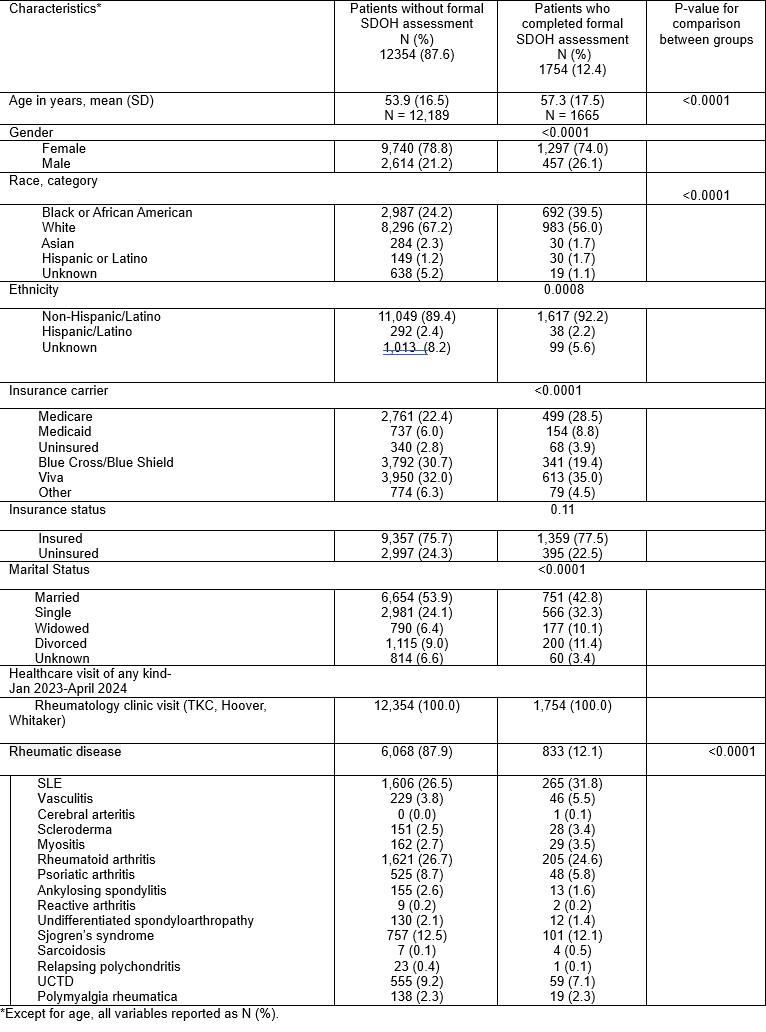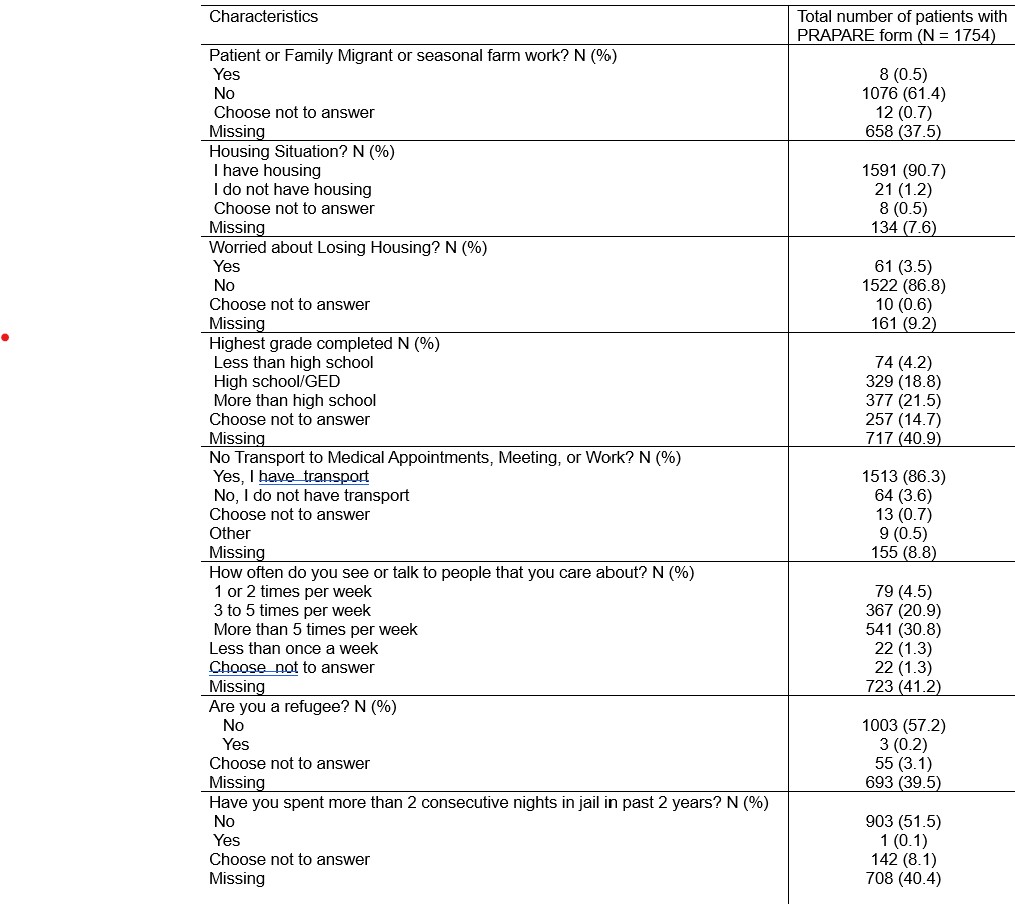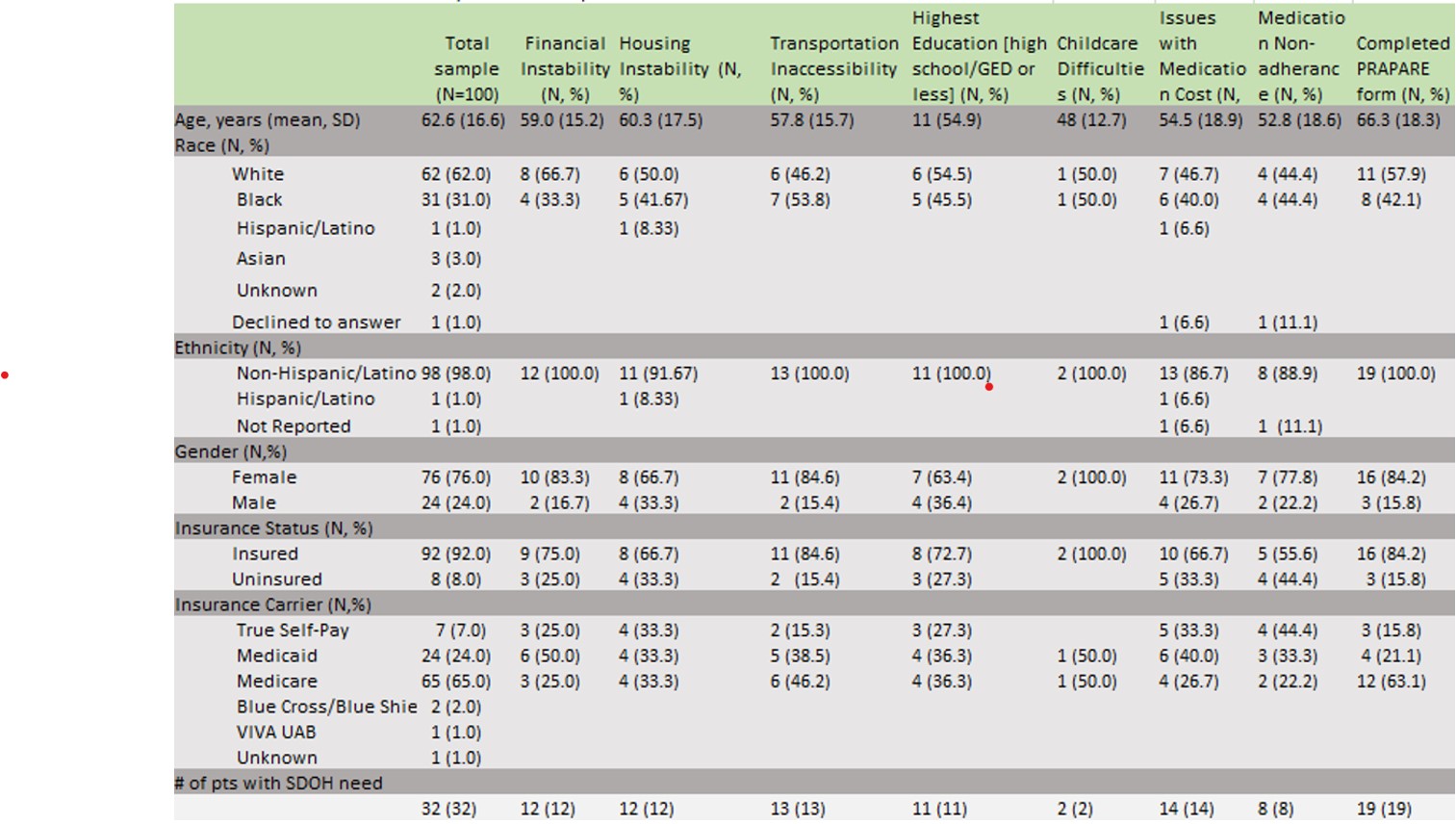Session Information
Session Type: Poster Session C
Session Time: 10:30AM-12:30PM
Background/Purpose: Social determinants of Health (SDoH) such as poverty and housing instability, influence outcomes of people with rheumatic and musculoskeletal disease (RMD). People with RMD often face financial constraints to afford medications and attend required appointments, so it is important to evaluate SDoH-related needs in these patients to: 1) identify patients who are disproportionately affected and 2) develop interventions to mitigate SDoH burden. The objective of this study was to understand the prevalence of SDOH-associated needs as documented in a sample of electronic health records (EHR) and through formal assessment questionnaires in people with RMD from a large academic rheumatology practice in the South.
Methods: Formal surveys of SDoH for people who screen positive for financial difficulties are performed in the Emergency Department or in some specialized clinics at our academic medical center. We extracted demographic data on all patients who had a visit in the rheumatology clinic between 1/2023 and 4/2024 and compared the characteristics of patients who completed this form and those that did not. We describe the SDoH needs assessed using the formal assessment questionnaire. In addition, we conducted a retrospective EHR review of 100 randomly selected patients with at least one International Classification of Disease (ICD-9/10) code for a RMD and who have public insurance (Medicaid or Medicare) or are uninsured. Provider and nursing notes, portal messages, and social work forms were reviewed for key terms (Ulysse et al., Chandler, et al.) to evaluate for financial insecurity, transportation access, education level, childcare difficulties, medication affordability, medication adherence, and housing instability.
Results: Among 14,108 patients, there were significant differences in baseline characteristics between patients who screened positive for financial difficulties and completed the SDOH questionnaire (N=1754) compared to those who did not screen positive and were not prompted to complete this form (N=12,354) (Table 1). They were slightly older, more likely to be Black, and more likely to have public or have no insurance. They were also less likely to be married. Housing instability and transportation inaccessibility were the most documented SDOH needs assessed by the questionnaire (Table 2). In manual EHR review, medication affordability was the most frequently documented SDOH need (Table 3). Female sex, lack of insurance, and Medicaid insurance status were associated with inability to afford medications.
Conclusion: Among people with RMD who completed a formal SDOH assessment, the most needs included housing instability and transportation difficulty, and EHR review also revealed documented concerns with medication affordability. A standardized screening tool implemented during rheumatology clinic visits may help assess SDOH needs to connect patients with appropriate resources to mitigate burden and reduce care inequities.
To cite this abstract in AMA style:
McCarty K, Begum R, Aaron K, Feldman C, Danila M. Social Determinants of Health Documentation and Prevalence Among Rheumatology Patients Seen in a Southern Medical Center [abstract]. Arthritis Rheumatol. 2024; 76 (suppl 9). https://acrabstracts.org/abstract/social-determinants-of-health-documentation-and-prevalence-among-rheumatology-patients-seen-in-a-southern-medical-center/. Accessed .« Back to ACR Convergence 2024
ACR Meeting Abstracts - https://acrabstracts.org/abstract/social-determinants-of-health-documentation-and-prevalence-among-rheumatology-patients-seen-in-a-southern-medical-center/



